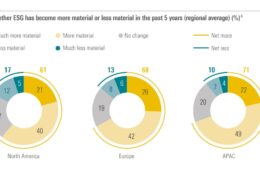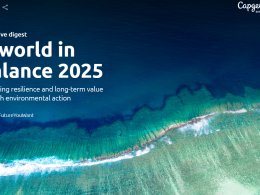The Australian Sustainable Finance Institute (ASFI) has published its fourth annual Progress Tracker on the implementation of the Australian Sustainable Finance Roadmap. This report highlights significant advancements made in the past year to enhance sustainable finance infrastructure and boost capital flows for sustainable initiatives.
According to the report, a key highlight in 2024 was the Australian Government’s launch of its own Sustainable Finance Roadmap, outlining a framework for policy and regulatory reforms aimed at enhancing transparency and credibility in sustainable finance markets, thus assisting investors and companies in managing sustainability-related risks.
Notable achievements in the past year include the establishment of Australia’s mandatory climate-related disclosure regime, ongoing development of a sustainable finance taxonomy, and the issuance of the nation’s first sovereign green bond.
Despite these advancements, the average score across the 37 Roadmap Recommendations is 2.8 out of 5.0, reflecting only a modest increase of 0.2 from 2023. Sustainable finance flows in Australia for 2024 are on track to match or exceed those of 2023, aligning with global trends; however, sustainable finance still accounts for a minor share of overall financial activity.
ASFI CEO, Kristy Graham said, “Australia has advanced its sustainable finance landscape, especially with the release of the Government’s Sustainable Finance Roadmap. But there is more work needed to ensure significant progress continues over the next year. We need strong implementation of existing reforms over the next 12 months, and further efforts to address climate change, biodiversity loss, First Nations inclusion, and broader community resilience.”
Graham informed that the tracker identifies several priority areas, including strong net zero targets and plans for government and corporates; accelerating household electrification and energy efficiency; increasing investment for climate adaptation and resilience; integrating nature-related into financial decision-making; digitalisation of financial reporting to help make use of information from climate disclosures; and equitable partnerships with First Nations communities.
She added, “These action areas can be progressed through further aligning regulation with sustainability objectives; leadership and capability uplift within financial institutions; and deeper international engagement on sustainable finance policy – leveraging the rapid progress Australia has made in recent years on domestic frameworks such as the taxonomy and climate disclosures.”
















